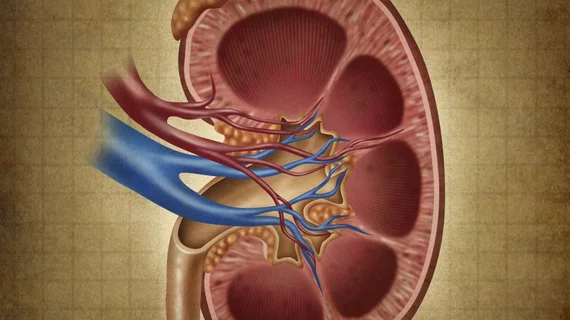Diffusion tensor imaging can accurately assess renal changes in kidney disease patients with diabetes
In diabetic patients with early-stage chronic kidney disease (CKD), diffusion tensor imaging (DTI) can accurately assess early renal function changes, reported authors of a new Clinical Radiology study.
“…The present data suggest that DTI is a useful non-invasive technique for detecting subtle events during early diabetic renal damage, and for monitoring the effects of various interventions,” wrote X.J. Ye, with Shandong University in China, and colleagues.
The researchers performed DTI on 36 diabetes mellitus patients and 26 healthy controls between September 2016 and September 2017. Apparent diffusion coefficient (ADC) and fractional anisotropy (FA) were calculated from the renal cortex and medulla. Those measures were correlated with estimated glomerular filtration rate (eGFR) and urinary biomarkers—two widely used markers to identify early kidney damage, the authors noted.
Results showed a “significant” decrease in FA values in the renal cortex and medulla in early-stage CKD diabetes patients, according to Ye XJ et al. Those FA values also correlated with eGFR and some with UA1MCR and UTRFCR. The authors noted they only saw an increasing ADC value trend in the renal cortex and medulla of diabetic patients.
“These results suggest the presence of physiological dysfunction and pathological changes in the very early stage of diabetes, prior to eGFR decline or macro-albuminuria detection,” the authors wrote.
“Overall, these data suggest that, at the very early stages of renal impairment, a progressive decline in FA values occurs with gradual development of renal impairment,” they concluded.

